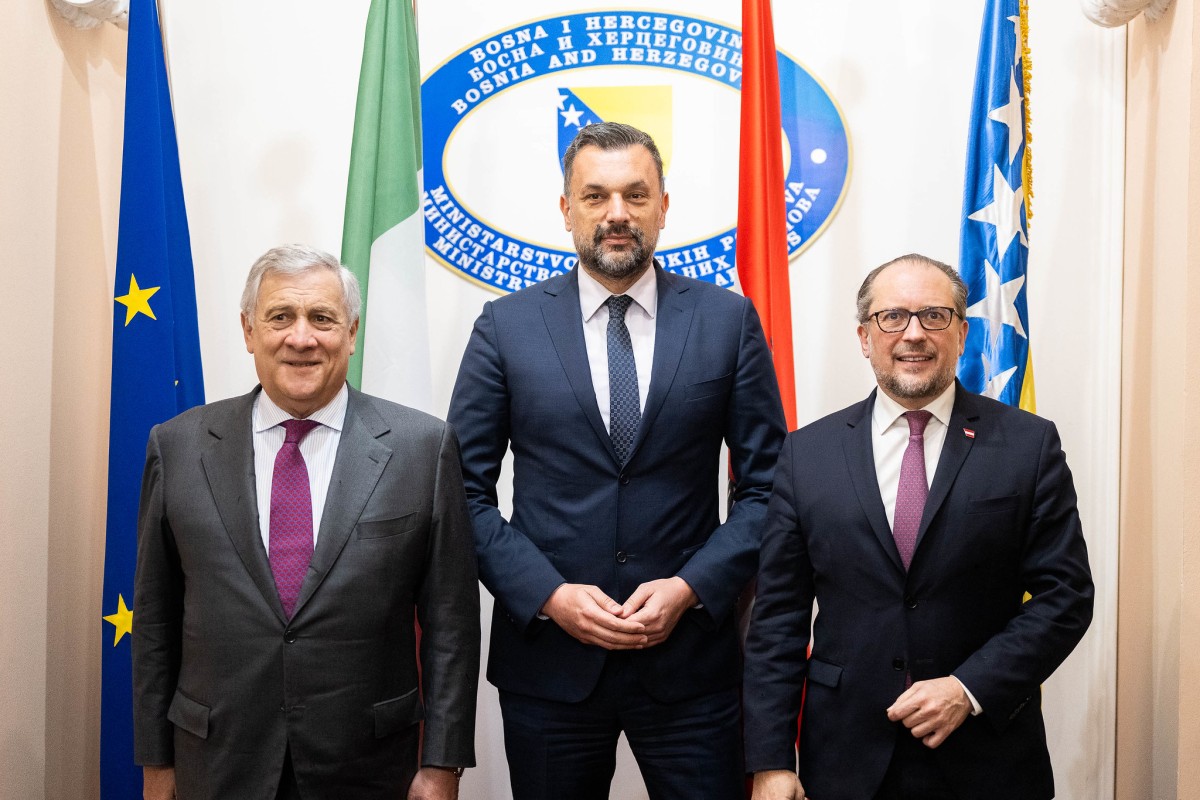Sponsored Content
Foreign Minister Schallenberg and His Italian Counterpart Traveled to Bosnia and Herzegovina
Austrian Foreign Minister Alexander Schallenberg and his Italian counterpart Antonio Tajani traveled to Bosnia and Herzegovina where they talked to several representatives of the country about the EU support for the country's reform and its general path towards the EU.
 Foreign Minister Schallenberg (r) traveled to Bosnia and Herzegovina with his Italian Counterpart Antonio Tajani (l) where they met with their Bosnian Counterpart Elmedin Konakovic / Picture: © BMEIA Bundesministerium für Europa, Integration und Äußeres / Gruber / Flickr Attribution 2.0 Generic (CC BY 2.0)
Foreign Minister Schallenberg (r) traveled to Bosnia and Herzegovina with his Italian Counterpart Antonio Tajani (l) where they met with their Bosnian Counterpart Elmedin Konakovic / Picture: © BMEIA Bundesministerium für Europa, Integration und Äußeres / Gruber / Flickr Attribution 2.0 Generic (CC BY 2.0)
On March 10, Foreign Minister Alexander Schallenberg and his Italian counterpart Antonio Tajani traveled together to Sarajevo, where they met Foreign Minister Elmedin Konaković, Chairwoman of the Council of Ministers Borjana Krišto, and the State Presidency of Bosnia and Herzegovina, consisting of Bosniak representative Denis Bećirović, Croat representative Željko Komšić, and…
or Log In
Fast News Search





